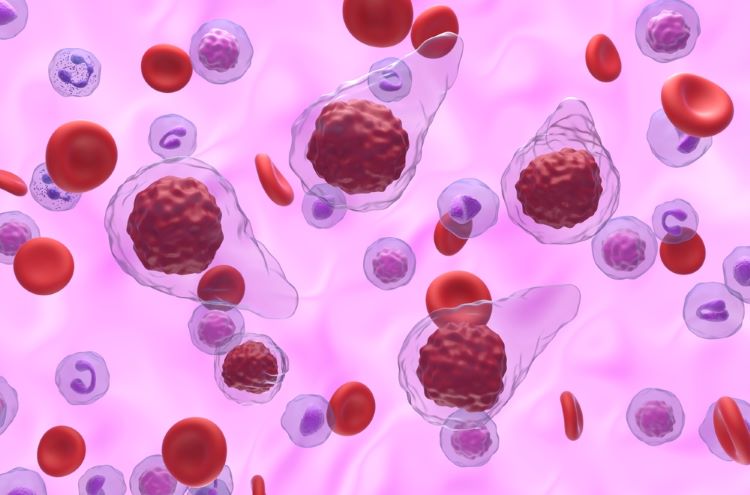First treatment for myelofibrosis with anaemia approved
The US Food and Drug Administration (FDA) has granted approval of a treatment for anaemic patients with a rare blood cancer.
The first and only treatment for anaemic patients with myelofibrosis has been approved by the US Food and Drug Administration (FDA).
Ojjaara (momelotinib) is indicated for intermediate or high-risk myelofibrosis, a blood cancer, including primary myelofibrosis or secondary myelofibrosis (post-polycythaemia vera and post-essential thrombocythaemia), in adults with anaemia.
GSK’s oral JAK1/JAK2 and activin A receptor type 1 (ACVR1) inhibitor can decrease the circulating protein hepcidin, which is elevated in myelofibrosis and contributes to anaemia, stated GSK.
“With momelotinib we have the potential to establish a new standard of care for myelofibrosis patients with anaemia”
Historically, there have been limited treatment options for treating myelofibrosis patients with anaemia. While transfusions are often required, more than 30 percent of patients will discontinue treatment due to anaemia. Patients who are transfusion dependent have a poor prognosis and shortened survival, according to research highlighted by GSK.
“With momelotinib we have the potential to establish a new standard of care for myelofibrosis patients with anaemia,” remarked Dr Ruben Mesa, FACP, President and Executive Director of Atrium Health Levine Cancer Center and Atrium Health Wake Forest Baptist Comprehensive Cancer Center, US.
Clinical evidence for Ojjaara
Approval of momelotinib by the US FDA is supported by data from the Phase III MOMENTUM trial and a subpopulation of adult patients with anaemia from the SIMPLIFY-1 Phase III trial.
MOMENTUM demonstrated statistically significant response in relation to constitutional symptoms, splenic response and transfusion independence, in patients treated with momelotinib versus danazol.
Phase III study SIMPLIFY-1 compared the safety and efficacy of momelotinib to ruxolitinib in patients with myelofibrosis who had not received prior treatment with a JAK inhibitor. Safety and efficacy results for SIMPLIFY-1 were based upon a subset of patients with anaemia.
Results from the 24-week treatment period for the Phase III MOMENTUM study were published in The Lancet in January 2023.
Myelofibrosis
This rare blood cancer occurs due to dysregulation of the JAK-signal transducer and activator of transcription protein signalling. It is characterised by constitutional symptoms, splenomegaly, and progressive anaemia, noted GSK.
Related topics
Anti-Cancer Therapeutics, Big Pharma, Biopharmaceuticals, Clinical Development, Clinical Trials, Drug Development, Drug Markets, Drug Safety, Industry Insight, Proteins, Regulation & Legislation, Research & Development (R&D), Therapeutics










